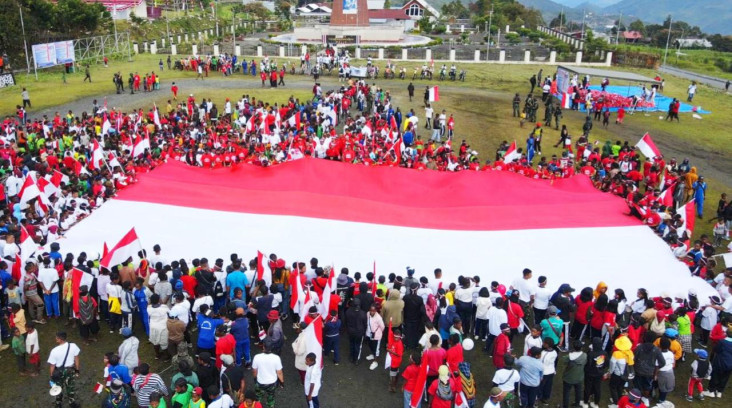Every year, the separatist group Free Papua Organization (OPM) revives the narrative that July 1 marks the “independence” of Papua. This claim continues to spread across social media, international propaganda networks, and underground publications. However, historical records show that this declaration lacks legal standing, is not recognized internationally, and is even rejected by the majority of Papuans themselves.
A Unilateral Declaration, Rejected by the World
The OPM’s claim stems from a unilateral declaration made on July 1, 1971, by a small faction calling themselves the West Papua National Liberation Army (TPNPB). They proclaimed the independence of “West Papua” at their so-called Victoria Headquarters in Jayapura. Yet, no country in the world has ever recognized this declaration as legitimate.
“That declaration was never internationally acknowledged. Papua remains a legal part of the Republic of Indonesia, both de facto and de jure,” said Prof. Dr. Bambang Purwanto, a senior historian at Gadjah Mada University, on Tuesday (1/7).
According to Prof. Bambang, Papua’s integration into Indonesia was formalized through the Act of Free Choice (Pepera) in 1969, which was supervised by the United Nations.
Pepera and International Legitimacy
The Pepera process was held in 175 districts with the participation of 1,025 Papuan representatives. The result overwhelmingly favored integration with Indonesia. On November 19, 1969, the UN General Assembly adopted Resolution No. 2504, acknowledging the outcome without significant objection from member states.
“If they (OPM) claim Pepera was illegitimate, they ignore the international community’s clear stance since 1969,” said Lt. Gen. (Ret.) Nono Sampono, former Deputy Speaker of Indonesia’s Regional Representative Council (DPD) and a defense expert from Eastern Indonesia.
Historical Manipulation and the Miseducation of Youth
Sadly, OPM continues to distort history to lure younger generations of Papuans into hostility against the state. Social media has become their main weapon in spreading hoaxes about the so-called July 1 “independence.”
Data from Kominfo Papua shows that at least 143 disinformation posts related to Papua’s “independence” were spread on social media throughout June 2024.
“These hoaxes target high school and university students. They are brainwashed with false historical claims that only pull them away from progress,” stated John Wempi Wetipo, Indonesia’s Deputy Minister of Home Affairs and a prominent figure from Papua.
Voices from the Land: We Want Peace, Not Separation
Several local leaders and young Papuans have publicly rejected the July 1 propaganda. Yosep Tabuni, a traditional leader from Lanny Jaya, explained that the ongoing independence narrative only brings prolonged conflict.
“We don’t want our children to grow up in a world of war and hatred. Papua is already free within Indonesia,” said Yosep.
Maria Wenda, a student from Wamena currently studying in Malang, shared her experience learning the real history behind the false independence claim.
“Once I learned the truth, I realized it was just separatist propaganda. True progress in Papua comes through education—not violence,” she said.
Closing: A New Path for Papua
Rather than commemorating a misleading narrative, many young Papuans now choose to observe July 1 with reflection and prayers for peace. The government continues to push forward with its Special Autonomy Plus program, infrastructure development, and improved access to education across the region.
History should guide the future. It’s time for Papuans to build on the truth, not separatist propaganda. July 1 is not Independence Day—it is a reminder of a divisive narrative kept alive by a small group at the expense of the majority.









